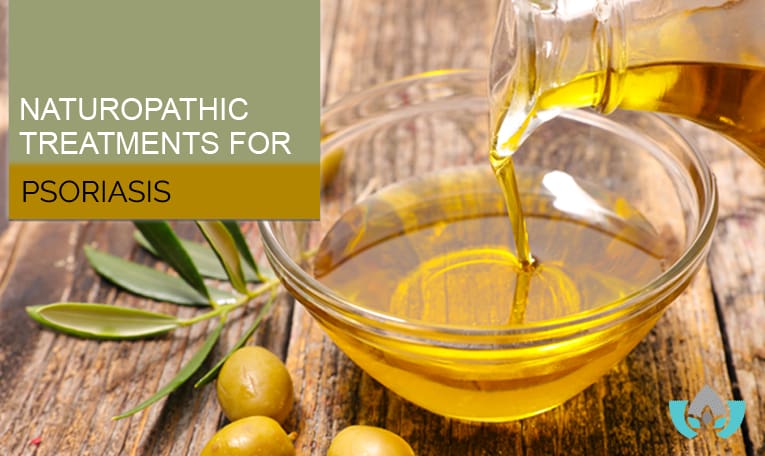
Your skin is an incredibly complex organ with many associated ailments and conditions.
Have you noticed that you have scaly, dry, or itchy skin?
This may be an indication that you have psoriasis.
According to the Canadian Dermatology Association, 1 million Canadians are currently living with this condition.
That accounts to roughly 2.5% of Canada’s population.
If you or a loved one are dealing with pesky psoriasis symptoms, you may want to consider consulting with a naturopathic practitioner.
That’s where we come in.
Mindful Healing Naturopathic Clinic is a naturopathic clinic offering virtual naturopathic consultations for a wide range of different health concerns.
Naturopathic treatments for skin conditions like psoriasis can help you manage your condition.
In this article, we’ll discuss what psoriasis is, its symptoms, as well as how natural remedies can help.
What Is Psoriasis?
Psoriasis is a chronic skin condition.
It’s classified as an autoimmune disorder due to an imbalance in your immune system.
Typically, skin cells have a lifespan of approximately one month before they get replaced.
This process begins with the production of cells deep beneath your skin’s surface.
Over time, new skin cells rise to the surface and replace the older ones as they shed.
In people with psoriasis, this process is drastically accelerated.
Psoriasis triggers an overactive immune response where skin cells reproduce much more rapidly than usual.
Rather than a month, the production of skin cells occurs over the span of just a few days.
Ultimately, new skin cells emerge before the older ones shed.
This can result in a multitude of symptoms, including:
- Itching
- Skin scaling
- Pain and tenderness
- Skin redness
RELATED: How To Deal With Chronic Pain Naturally
There is currently no known cure for psoriasis.
However, its symptoms are manageable through lifestyle changes and avoiding certain triggers.
Next, we’ll discuss some of the specific types of psoriasis and their associated symptoms.
Plaque Psoriasis
Plaque psoriasis is the most common form of psoriasis, accounting for approximately 80% to 90% of cases.
It typically causes inflamed patches of skin, which appear red on lighter skin tones or purplish gray on darker ones.
People with darker skin tones often experience more severe symptoms, such as scale (plaque) clusters on the skin’s surface.
Plaque psoriasis most commonly affects the skin on your elbows, knees, and scalp.
Pustular Psoriasis
Pustular psoriasis is more common amongst adults.
It causes white, pus filled blisters across your skin’s surface.
It’s typically found in smaller sections of your body, such as your hands and feet.
However, some people experience symptoms of pustular psoriasis in broader sections of their body.
Guttate Psoriasis
Unlike pustular psoriasis, which mostly occurs in adulthood, guttate psoriasis is typically diagnosed amongst children.
It causes small pink or violet coloured spots that are most commonly found on the torso, arms, and legs.
However, these spots aren’t typically thick and raised like those seen in plaque psoriasis.
Erythrodermic Psoriasis
Erythrodermic psoriasis is the most severe form of psoriasis.
Thankfully, it’s also the rarest.
Erythrodermic psoriasis affects very large sections of the body, resulting in inflamed skin which often resembles a particularly bad sunburn.
These inflamed scales also tend to fall off in large sections, leaving your body vulnerable to infection and fever.
Therefore, this form of psoriasis is potentially life threatening.
Inverse Psoriasis
Inverse psoriasis causes red, shiny, and inflamed patches of skin.
It most commonly occurs in the folds of your skin, such as under your armpits, breasts, groins, or around the genitals.
How To Tell If You Have Psoriasis
Now that you know a little bit more about the specific types of psoriasis, you might be wondering about how to recognize its symptoms.
As we previously discussed, the most obvious symptom of psoriasis is scaly, dry, or itchy skin.
The presence of psoriatic scales is another indicator.
Depending on your skin tone, these scales might appear whitish silver to bright red, or somewhere in between.
Psoriatic scales occur in many spots, including:
- Hands and feet
- Neck
- Scalp
- Face
- Nails
- Mouth
- Genitals
Psoriasis symptoms may vary from person to person.
Some of the most common symptoms include:
- Raised, inflamed sections of skin
- Scales or plaques that vary in colour
- Dry, cracked skin with possible bleeding
- Pain on and around affected areas
- Itching or burning around affected areas
- Thick nails
- Tender, swollen joints that may resemble arthritis symptoms
RELATED: Naturopathic Treatments For Osteoarthritis
The symptoms of psoriasis commonly occur in cycles with periods of active symptoms followed by remission.
Severe symptoms typically occur anywhere from a few days to a few weeks before fading.
Afterwards, most people experience a period of remission where symptoms are nonexistent or unnoticeable.
However, symptoms return within a few weeks or when triggered by an environmental factor, such as stress or certain foods, and the cycle restarts.
Causes And Risk Factors For Psoriasis
Psoriasis isn’t contagious; therefore, you can’t catch it from touching someone with the condition.
However, certain risk factors may increase your likelihood of developing the condition.
Genetics play a particularly important role in the development of psoriasis.
You have an increased likelihood of experiencing psoriasis if you have an immediate family member, such as a parent or sibling, with the condition.
Additional risk factors for the development of psoriasis include:
- Type 2 diabetes
- Digestive disorders like inflammatory bowel disease
- Heart disease
- Anxiety
- Depression
Symptoms of psoriasis are also associated with certain triggers.
In other words, people with psoriasis often experience periods of active symptoms due to a specific environmental factor.
But these triggers aren’t universal.
What triggers symptoms in one person may not do the same to another.
Nonetheless, certain triggers appear more frequently than others.
Common triggers can include:
- Emotional stress
- Excessive alcohol consumption
- Certain medications, such as lithium and high blood pressure medicines
- Infections, such as strep throat
This list is by no means exhaustive.
Your naturopathic doctor at The Mindful Healing Clinic can help you pinpoint your personal triggers and manage them.
RELATED: These 5 Vitamins May Strengthen Your Immune System
RELATED: 5 Ways To Manage Stress
Naturopathic Solutions For Psoriasis
Naturopathic doctors have plenty of experience with the management of psoriasis symptoms.
The naturopathic approach can help you identify your triggers and prevent future outbreaks.
Your naturopathic doctor will first assess your nutritional and environmental factors.
Next, they’ll help you understand the ways in which your lifestyle factors affect your symptoms.
Here at The Mindful Healing Clinic, we recommend a variety of methods aimed at symptom management.
The following section will discuss some of these methods.
Make sure to speak to your naturopathic doctor before trying any of these, however.
1. Eat A Psoriasis Friendly Diet
An anti-inflammatory diet is crucial for psoriasis symptom management.
Psoriasis is commonly triggered by inflammation in your body.
Therefore, sticking to a diet which centers anti-inflammatory foods can do wonders for your symptoms.
An anti-inflammatory diet promotes the reduction of certain foods, such as:
- Refined sugars
- High processed foods
- Alcoholic beverages
- Dairy
Instead, increase your intake of anti-inflammatory foods, such as:
- Fruits and leafy greens
- Nuts
- Fatty fish
- Olive oil
2. Omega-3 Fatty Acids
Incorporating plenty of omega-3 fatty acids into your diet is equally important.
Omega-3 fatty acids combat inflammation within your body, which may lead to a reduction of psoriasis symptoms.
Foods high in omega-3 fatty acids include:
- Salmon
- Sardines
- Shrimp
- Nuts, such as walnuts
- Seeds, such as flax seeds
- Soybeans
- Leafy greens, such as spinach
- Fish oil supplements

3. Use A Humidifier
Psoriasis symptoms are often worse during the winter months.
This is because dry air dehydrates your skin, leading to cracked and irritated patches of skin.
But don’t worry, you don’t have to forgo central heating during the cold months to prevent such symptoms.
A humidifier can help restore some moisture to the air and soothe psoriasis symptoms.
4. Take An Oat Bath
Believe it or not, oatmeal isn’t just a hearty meal.
In fact, it can also help moisturize your skin.
Many people with psoriasis report a reduction of symptoms following an oat bath soak.
Pour one cup of dry oats into your bathwater, sit back, and relax.
However, avoid making your bathwater too warm as hot water can worsen dry skin.
5. Aloe Vera
Aloe vera is a succulent plant which originates from the Arabian Peninsula.
The gel found inside aloe vera plants has plenty of health benefits.
For instance, it does wonders for soothing irritated skin.
You can purchase aloe vera gel at most drugstores and apply it directly to irritated skin.
Book Your Appointment With The Mindful Healing Clinic Today
At The Mindful Healing Clinic, we have a passion for natural remedies.
If you’re looking for natural remedies for psoriasis symptoms, you’ve come to the right place.
Our expert staff can help you with both the identification of psoriasis symptoms, as well as management of the condition.
Book your appointment with The Mindful Healing Clinic today and find out how natural remedies can transform your skin.
Until next time,
Dr. Maria Cavallazzi, N.D
Mindful Healing Naturopathic Clinic
Mississauga, ON L5M 1L7
(905) 819-8200
► https://g.page/MindfulClinicNaturopathic
Dr. Maria Cavallazzi is a medical doctor from Colombia where she practiced as a family physician for 8 years until she moved to Canada 16 years ago and became a naturopathic doctor in Mississauga.


